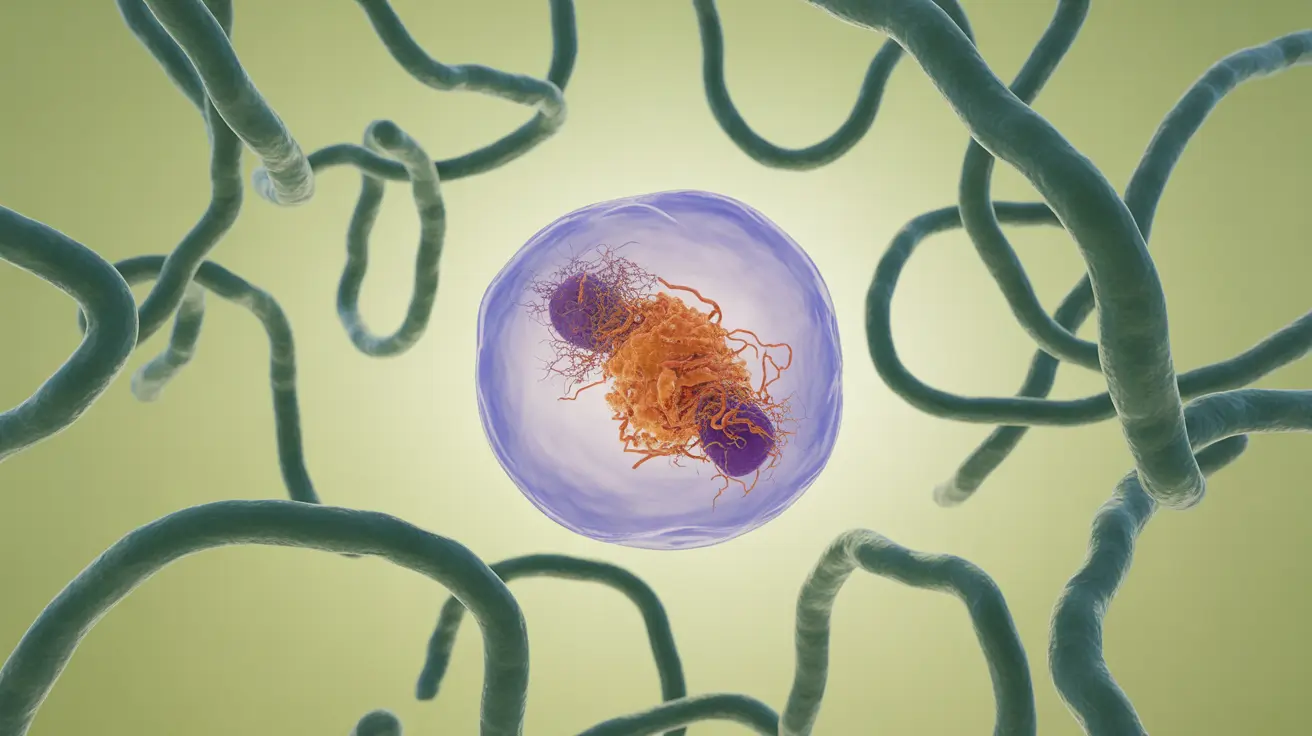Autophagy is a fascinating biological process that acts as your body's internal recycling system, breaking down and reusing damaged or unnecessary cellular components. This remarkable mechanism helps maintain cellular health, promotes longevity, and plays a crucial role in preventing various diseases. Understanding autophagy can help you make informed decisions about your health and lifestyle choices that support this vital process.
In this comprehensive guide, we'll explore how autophagy works, its numerous health benefits, and the various ways you can naturally enhance this cellular cleaning process in your body.
The Science Behind Autophagy
At its core, autophagy is a sophisticated cellular maintenance mechanism where cells identify and remove damaged or dysfunctional components. Think of it as your body's quality control system, constantly monitoring and cleaning up cellular debris to maintain optimal function.
During this process, specialized structures called autophagosomes engulf targeted cellular materials and transport them to lysosomes, where they're broken down into basic building blocks. These components can then be recycled to create new cellular structures or used for energy production.
Types of Autophagy and Their Functions
There are three main types of autophagy, each serving specific purposes in cellular maintenance:
- Macroautophagy: The most common form, involving the bulk degradation of cellular components
- Microautophagy: Direct engulfment of cellular materials by lysosomes
- Chaperone-mediated autophagy: Selective protein degradation guided by specific cellular proteins
The Health Benefits of Autophagy
Enhanced autophagy has been linked to numerous health benefits:
- Improved cellular function and repair
- Enhanced immune system response
- Better metabolic regulation
- Reduced inflammation
- Potential protection against age-related diseases
- Improved cognitive function
Triggers and Activators of Autophagy
Several factors can activate or enhance the autophagy process:
Fasting and Dietary Interventions
Fasting is one of the most powerful triggers for autophagy. When food intake is restricted, cells activate autophagy to maintain energy levels and clear out damaged components. Different fasting approaches, from intermittent fasting to time-restricted eating, can stimulate this process.
Exercise and Physical Activity
Regular exercise, particularly resistance training and endurance activities, can trigger autophagy in various tissues, including muscles, liver, and brain cells.
Sleep and Circadian Rhythm
Quality sleep and maintaining a regular circadian rhythm can support healthy autophagy cycles, as this process is naturally regulated by our internal biological clock.
Frequently Asked Questions
What is autophagy and why is it important for my health?
Autophagy is your body's natural cellular recycling system that removes damaged components and maintains cellular health. It's important because it helps prevent disease, supports longevity, and maintains optimal cellular function throughout your body.
How does fasting trigger autophagy and what are the benefits?
Fasting triggers autophagy by creating a stress response in your cells, prompting them to break down unnecessary components for energy. This process leads to improved cellular health, reduced inflammation, and enhanced metabolic function.
Can autophagy help prevent or treat diseases like cancer and Alzheimer's?
Research suggests that autophagy may help prevent or slow the progression of various diseases by removing damaged cellular components and reducing inflammation. While it shows promise in both cancer and Alzheimer's research, more studies are needed to fully understand its therapeutic potential.
What are the different types of autophagy and how do they work in the body?
The three main types of autophagy (macroautophagy, microautophagy, and chaperone-mediated autophagy) work together to maintain cellular health. Each type targets different cellular components and operates through distinct mechanisms to maintain cellular homeostasis.
How does aging affect autophagy, and can I boost it to promote longevity?
Autophagy naturally declines with age, which may contribute to various age-related diseases. However, you can boost autophagy through lifestyle interventions such as regular exercise, intermittent fasting, quality sleep, and stress management to potentially promote healthy aging and longevity.




